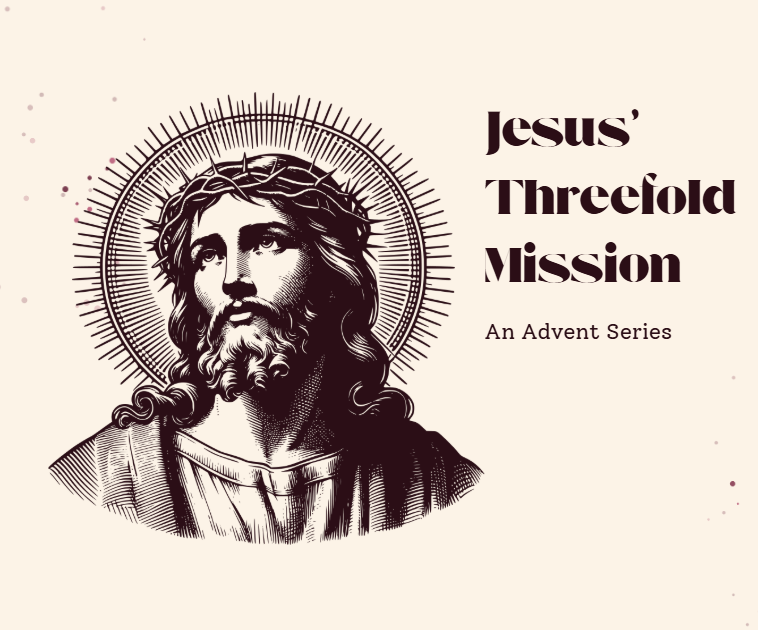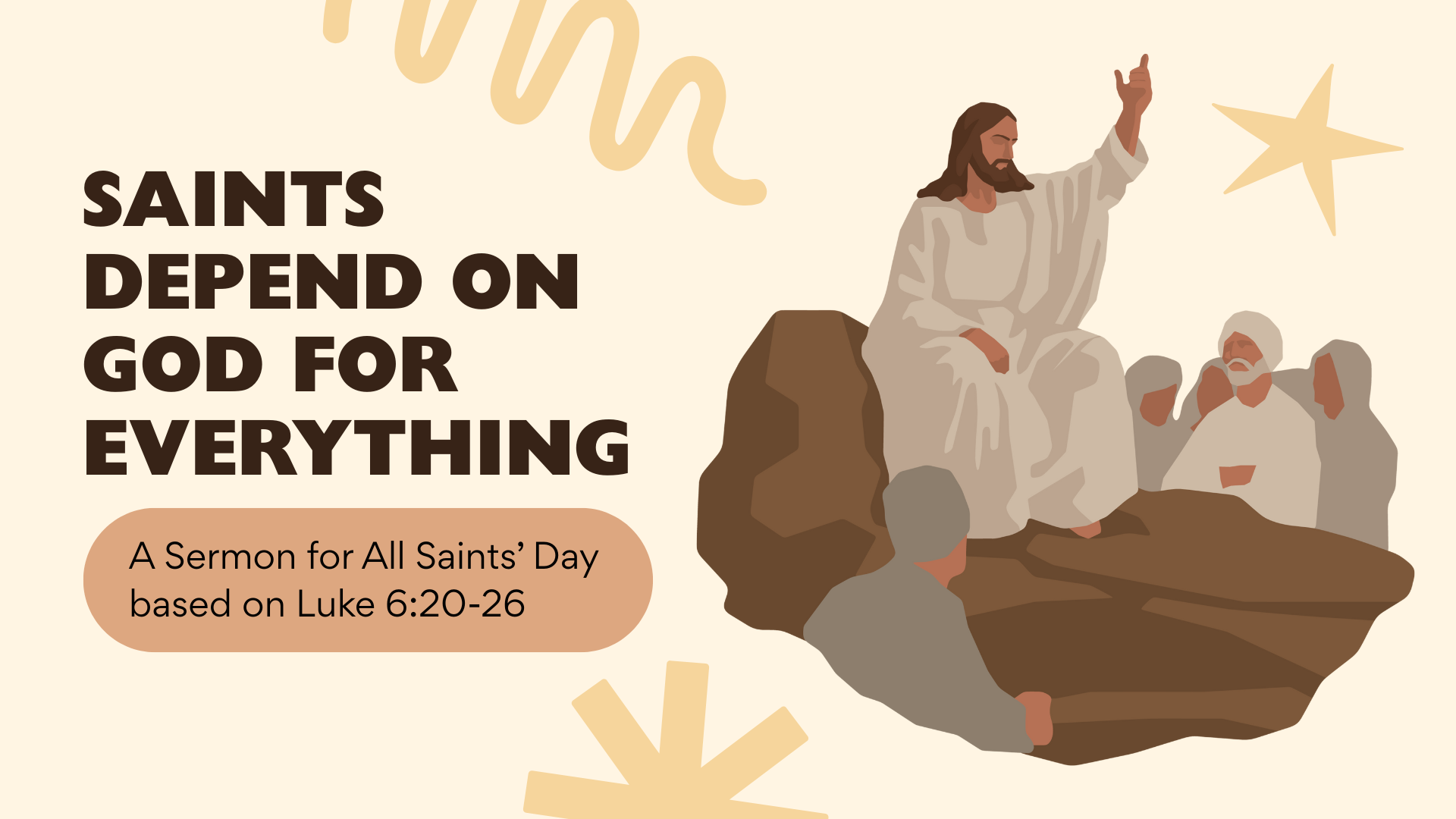Life’s Biggest Moment (A Discussion of the ‘Last Things’)

A major blessing of being a pastor is that I get to be present for many big moments in people’s lives. I appreciate the trust and honor people give to me when they ask for me to officiate their daughter’s quinceañera, to baptize their child, to perform their wedding. These joyful moments in people’s lives bring ample opportunity to give thanks to God and ask for his continued blessing through special devotions and services.
Funerals are the type of “big moment” that any pastor should expect to be called upon to officiate. Funerals seem to engender a different set of emotions. This was shown in our discussion during last Sunday’s Bible study hour. When asked to describe what the word “funeral” means to them, the participants’ responses indicated a complicated mixture of feelings of grief, loss, mourning, and somberness alongside feelings of celebration, love, remembrance and even worship. Participants discussed with me the complicated nature of holding both of these categories of feelings in our hearts when we have to say goodbye to a loved one. The circumstances of the loved one’s passing will change the intensity and nature of our grief, but the same core idea is there: we don’t want to have to say “goodbye,” but when forced to do so, we look for something to bring us some joy to answer our tears.
It is popular to shy away from the subject of death, and we can certainly see why. As a consequence of sin, death is the unwelcome intruder into God’s good creation (Genesis 3:19, Romans 5:12). It burdens every relationship; every achievement; every endeavor with the looming threat of separation from this life (Ecclesiastes 12:1-7).
But if we continue the trend to avoid speaking about death, we will miss out on a lot of encouragement from Scripture. Yes, death has arrived as a consequence of sin, but by suffering the eternal, spiritual death we all deserve, Christ has removed its sting (1 Corinthians 15:55-57, Romans 6:8-10). Through faith in Christ, death has no power to stop us from experiencing the eternity of joy and bliss that await us in the life to come (John 11:25-26). When we pass away in Christ, our souls join believers throughout the ages in the unimaginable and eternal joy of being in Christ’s presence (2 Corinthians 5:8, Revelation 21:3-4).
It would seem wise, then, to hear Scripture’s witness about what happens when we die, because doing so will equip us with the greatest comfort possible when faced with grief over the death of a loved one, or fear for our own death. At his crucifixion, Jesus spoke to the criminal being crucified next to him. Upon hearing this man’s confession that Jesus has a heavenly kingdom beyond this world, Jesus responds by assuring him that he will enjoy the presence of heaven through the gift of faith in the gospel “today,” that is, immediately upon his death (Luke 23:42-43). Consider also when Jesus taught about the rich man and poor Lazarus (Luke 16:19-31), an account that describes Lazarus’ entrance into heaven after death, but the rich man’s sentencing to hell (Luke 16:22-23). The Bible teaches that the moment we die, our souls separate from our bodies and are taken to their eternal places: heaven for those who die in faith, hell for those who do not. This likely produces some questions in your mind, so hang on for a moment.
It could be supposed that because our souls and bodies separate upon death, our souls are what matter and our bodies do not. But that would miss the point of Scripture, and even more comfort. In the soaring “Resurrection Chapter” of 1 Corinthians 15, Paul describes the necessity for our bodies to join us in heaven. That’s what Jesus will accomplish on Judgment Day aka “The Last Day.” According to passages like 1 Corinthians 15:53-57 and Philippians 3:20-21, the final act of Jesus’ redemption is to raise and glorify our bodies, uniting them with our souls so that we enjoy a body-and-soul life of perfection with him in heaven’s bliss.
What will that look like, feel like, sound like when it happens? What will heaven be like? These questions are posed to me regularly, and I wonder if my response of “I can’t say for certain,” is disappointing. It shouldn’t be. 1 Corinthians 2:9-10 and 1 Corinthians 13:11-12 show that our sin-darkened imagination can’t comprehend what eternal, perfect happiness heaven will be like. That’s the point – it is incomparable to any joy this world has to offer. We’ll just have to see when we get there.
Imagine standing by the graveside of a dead Christian, and these Scriptures are preached to you and your fellow mourners. What comfort there is to know that you will see your loved one again! What peace to hear that they are not suffering, nor did they simply stop existing, but they live on in the presence of their Redeemer!
We would never want to command people not to feel sad at their loved one’s passing, as if they aren’t supposed to miss them, or prevent them from meditating on the ways sin and its consequences have altered our world. But we can use grief and pain to drive us back to the cross. We don’t grieve as those who have no hope (1 Thessalonians 4:13-18), but that doesn’t mean we don’t grieve (Romans 12:15). We let Christ dry our tears with his gospel, but that doesn’t mean we aren’t allowed to cry (Psalm 6:6). Feel your feelings, brother or sister, and take them to Christ (1 Peter 5:7).
What about the time we have before our death or before Judgment Day? Far from telling us to sit around and wait for Jesus to come back, the fact that heaven awaits us after death is frequently used as a motivator for living out the lives of service that we are called to, and that demonstrate the gospel to the world (See 1 Thessalonians 4:13-5:11 for example).
What about those who don’t believe? Often this question is posed to me as a request for information, which is completely appropriate. We should talk about the need for saving faith. But isn’t this question also a “marching order”? It’s true that amazing things await those who are in the Lord when we die or when Jesus comes back. Isn’t it terrible to think that there are others who won’t experience that? While we can’t cause the gospel to take root in the hearts of others (1 Corinthians 3:5-7), God will use our witness to bring others to this saving faith. I realize that some churches have used the fear of hell to motivate their members to evangelize their friends and neighbors, but instead of going that route, simply think of this: after meditating on the beauty of the message of Christ’s victory over our sin and death, the promise of greater things after this life and of purpose and meaning in this one, after receiving the gift of being able to grieve as one who has hope, don’t we want that for others? If there are others who have not tasted of that joy found in God’s eternal goodness, don’t we want them to? As you share the goodness of this eternal hope, who knows?, maybe you will get to be present for one of life’s biggest moments in someone’s life: the moment they realize that God loves them and that they’re going to heaven.
There are so many parts of Scripture that use what we’ve discussed today for comfort and encouragement. I’ve only referred to a handful of them. Please consider joining us for the larger discussion of these things throughout our Sunday Morning Bible Classes at 9am and worship at 10:15am!
God bless you!
- Pastor Mike Cherney







